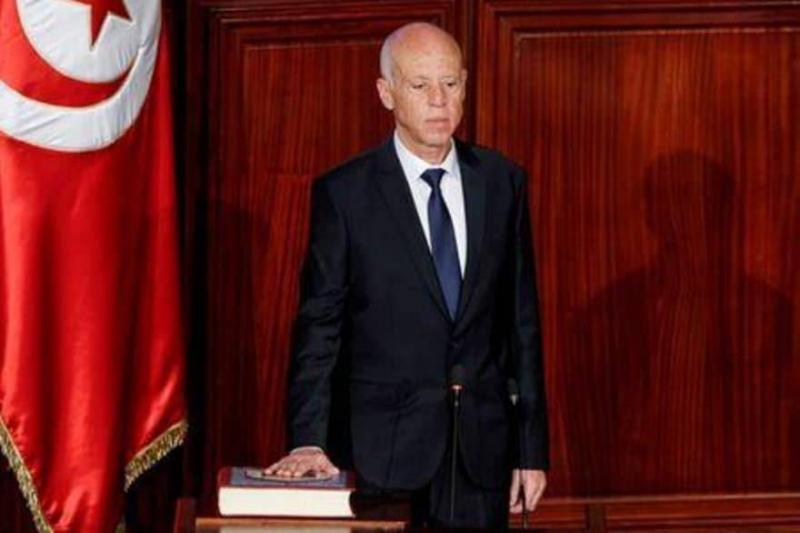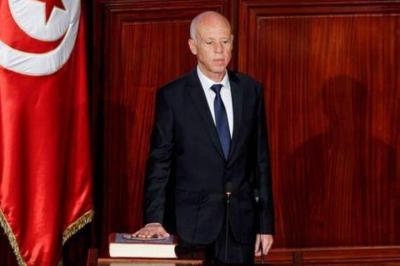On Monday night, Tunisian President Kais Saied announced that a "new electoral law project will be established so that elected representatives are accountable to their voters." Saied pledged to appoint a new Prime Minister, referring to "transitional provisions that respond to the will of the people."
In a speech delivered from the Governorate of Sidi Bouzid, the birthplace of the 2011 uprising, in front of a crowd of citizens, he stated that "extraordinary measures will continue," asserting that "the parliamentary council they want to return to was a battleground, a place of insult and violence, and it became a market for buying and selling votes."
He added: "The extraordinary measures could have been harsher than they can handle, but I dealt with them on ethical grounds; our legal missiles on launch pads, and just one signal is enough to strike them at their very core."
The Tunisian President emphasized his respect for public freedoms: "Let the whole world hear that the rulings related to rights and freedoms enshrined in the constitution will remain in effect; I have worked to ensure that no freedom is infringed upon."
Saied confirmed that "there is no room for retreat or confusion." He added in a speech broadcast by the Tunisian presidency on Facebook, "The challenge remains the challenge, and we will never abandon it except victorious. As fabricated crises intensify, so does the will to overcome and surpass them."
The president accused some parties of "spreading chaos, doubt, and panic." He remarked: "I expected some people's actions would align with their commitments, but I discovered that their real hidden objectives are to further torment the people and sabotage the revolution."
He continued: "I let time pass since taking exceptional measures to distinguish between free patriots and those who sold the homeland and those willing to sell it. The issue is not about a government but about an integrated system."
He warned that there are "those who want to return to the situation before July 25," stressing that they "will never return to that date." He pointed out that "many government facilities have improved their performance following the exceptional measures."
Tunisians await the next steps from the President approximately two months after the dismissal of the government, the suspension of parliament's work, and the stripping of deputies' immunity on July 25. Earlier, Saied hinted at the possibility of making amendments to the constitution in place since 2014. He indicated efforts to form a new government as soon as possible and to choose ministers capable of meeting the people's demands.
Saied's measures received popularity among some sectors following years of economic stagnation and political deadlock, but they also raised concerns among other sectors regarding the future of the democratic system established after the 2011 uprising.




